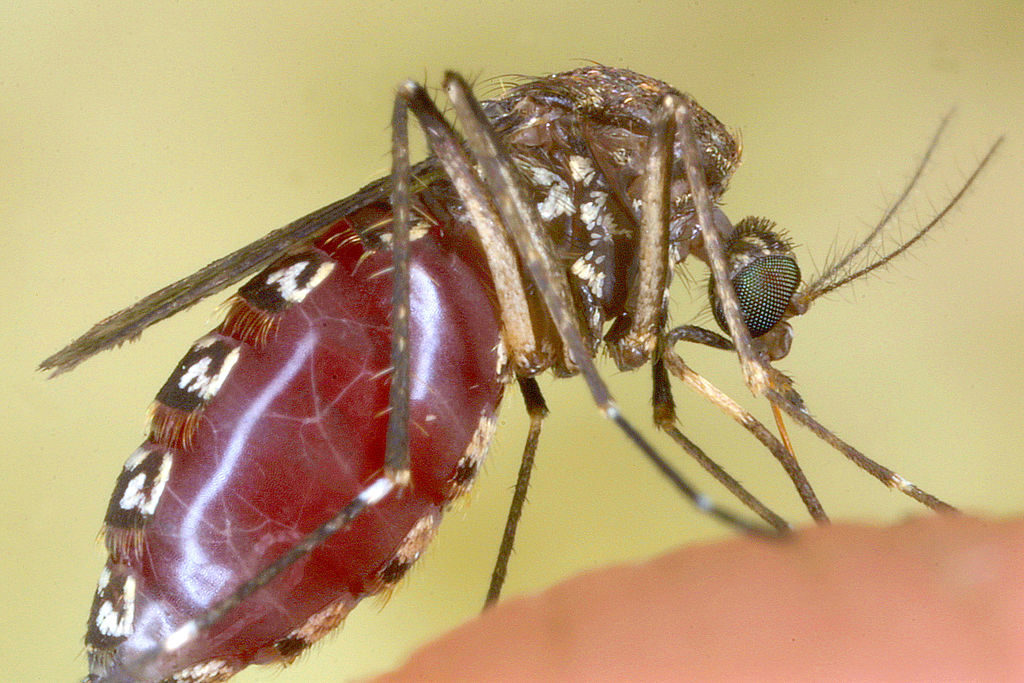Among the inevitable fallout stemming from the ocean of water dumped on South Texas by Hurricane Harvey will be a hoard of bloodsucking mosquitoes, but state-level entomologists predict the first onslaught won’t be the disease vectors many fear.
“For the past several years we’ve been educating people about disease-transmitting mosquitoes, but we are about to witness a huge emergence of other kinds of mosquitoes,” said Dr. Charles Allen, Texas A&M AgriLife Extension Service entomologist and Texas A&M University department of entomology associate department head at San Angelo. “Due to the big rain event associated with Hurricane Harvey, in a few short days and over the next few weeks we’ll be expecting a large outbreak of what are called floodwater mosquitoes.”
Allen said it’s important to realize the disease-transmitting mosquitoes and the floodwater mosquitoes are two separate developmental types. The floodwater mosquitoes in Texas do not transmit diseases, he said.
“There will soon be a lot of mosquitoes and they will be very noticeable, because of their sheer numbers and because they are vicious biters,” he said. “It’s important to realize though that as unpleasant as these will be, they are not a species that typically transmits disease. So at least in the short-term, it’s not a Zika issue and it’s not a West Nile Virus issue.”
Dr. Sonja Swiger, AgriLife Extension medical/veterinary entomologist in Stephenville, said the mosquito proliferation will be cyclical as there will be several weeks of floodwater mosquito issues to deal with.
“Then as conditions dry up, we will cycle out of those weeks of floodwater mosquitoes, and then begin cycling into a period of time where the disease-transmitting mosquitoes will emerge and build up,” Swigers said. “So, the initial run of mosquitoes is not too much of a disease threat although a huge nuisance to people but it’s the next run we really need to be concerned about.”
AgriLife Lands $10 Million CDC Grant To Fight Diseases Like Zika
Floodwater mosquitoes are difficult to manage, Allen said. When management is attempted, he said it almost must be conducted on an area-wide basis with widespread pesticide applications. In addition, people should get accustomed to wearing insect repellent, any time they will be outdoors for more than 30 minutes, Swiger said. Floodwater mosquitoes are relentless biters that will negatively impact outdoor activities and cleanup efforts.
“The disease transmitting mosquitoes on the other hand are much more local in their activity and are best handled by homeowners diligently draining water from anything where it collects,” she said. “Draining water to combat these disease vectors is always a good idea no matter what the climatological conditions have been. Birdbaths, children’s pools, plant saucers, no matter how small the catchment is, it is important to empty all standing water sites to control disease transmitting mosquitoes in order to prevent this type of mosquito from building their populations.”
“Just remember, the mosquitoes that are coming in swarms off the floodwaters very soon, although they are a terrible nuisance, are not the ones likely to make people sick.”
Swiger said though both are mosquitoes, floodwater mosquitoes need a large amount of rain or flood waters to reproduce and thrive, while their disease-carrying cousins, termed container breeders, only need a very small amount of rain or irrigation water.
Floodwater mosquitoes lay their eggs on dry land that floods or on wetlands, he said. As the floods come and rehydrate and soak the insects’ eggs, they start hatching and the immature stages start to develop into scores of hungry adults.
“In a backhanded sort of way, the floodwater mosquitoes probably do us a favor,” Allen said. “They are so unpleasant and there will be so many of them, that they will drive people inside and give them a strong reminder to use insect repellent. They definitely make people very aware of their presence. Hopefully, that awareness will stick in our minds long after they subside and cause us to be vigilant in combating the vector mosquitoes, which are an enemy capable of causing much greater loss.”
Allen said going into September the future will be brighter as the weather cools. He said mosquitoes don’t develop well in cooler weather, so populations should markedly decrease once temperatures begin to fall.
###
This story by Steve Byrns originally appeared in AgriLife Today.






